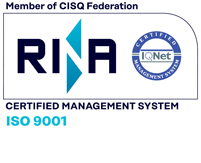
The conference on Artificial Intelligence and Supercomputers took place in Ljubljana on April 9-10, organized by the ICE Ljubljana Office in collaboration with the Embassy of Italy and the Italian Cultural Institute of Ljubljana. The event was held as part of the Italian Research Day Worldwide, an initiative promoted by the Ministry of Education, University, and Research, in coordination with the Ministry of Foreign Affairs and International Cooperation.
The two-day conference was the result of a long-standing collaboration with the Italian-Slovenian Forum, an association promoting dialogue between Italy and Slovenia in the fields of economics, culture, and research, as well as with the Jožef Stefan Institute, Slovenia’s leading research center, which hosted the first day of the event.
The initiative aimed to encourage the exchange of expertise between business and scientific communities from both countries, fostering commercial relationships, industrial partnerships, and research collaborations.
Day 1:
The first day focused on the impact of Artificial Intelligence technologies on society and possible future scenarios. Opening remarks were delivered by Jurij Giacomelli, President of the Italian-Slovenian Forum, followed by introductory speeches from Boštjan Zalar, Director of the Jožef Stefan Institute; Giuseppe Cavagna, Ambassador of Italy to Slovenia; and Jure Gasparič, Slovenian State Secretary for Higher Education, Science, and Innovation.
Ambassador Cavagna emphasized the importance and richness of scientific cooperation between Slovenia and Italy, with AI being just one facet of it. Both countries actively collaborate on high-profile cross-border projects such as the North Adriatic Hydrogen Valley (which includes the Friuli Venezia Giulia Region, Slovenia, and Croatia), scientific cooperation agreements between the Jožef Stefan Institute and the National Research Council of Italy, and trilateral Adriatic North cooperation on the blue economy.
Recent EU legislative developments aimed at enhancing European competitiveness while safeguarding shared social values and individual rights were discussed by Jerneja Jug Jerše, Head of the European Commission Representation in Slovenia, and Emilie Sundorph from the Joint Research Centre of the EU. Their interventions focused on the application of key regulatory acts such as the Artificial Intelligence Act (AI Act) and the Digital Services Act.
A video message was also played from Brando Benifei, Member of the European Parliament and rapporteur for the AI Act, recorded in Brussels earlier that day. He explained the guiding principles behind the adoption of the AI Act - the first and only such law worldwide - which aims to mitigate AI misuse while promoting competitiveness.
Stanislava Zadravec Caprirolo, Director of the Slovenian Banking Association, addressed the application of AI technologies in finance. A subsequent roundtable discussion featured Zadravec Caprirolo alongside Luigi Fuzio (CEO of Intesa Sanpaolo Bank Slovenia), Lorenzo Ramajola (CEO of Unicredit Slovenia), Mitja Feri (Board Member of Generali Slovenia), and entrepreneur Roberto Siagri (CEO of Rotonium). They shared their perspectives on AI’s impact on productivity, employment, and the quality of financial services.
The first day concluded with presentations on AI research advancements at the Jožef Stefan Institute and ongoing exchanges between Italy and Slovenia, presented by Jan Jona Javoršek, Head of the Network Infrastructure Center at the Jožef Stefan Institute, and Sašo Džeroski, Head of the Institute’s Knowledge Technologies Department.
Day 2:
The second day was dedicated to supercomputers developed under the European High Performance Computing Joint Undertaking, an initiative aimed at making Europe a global leader in supercomputing. Representatives from the institutions behind Leonardo, the supercomputer hosted at the Bologna Tecnopolo, and Vega, located in Maribor, were present.
The day's proceedings were opened by Giacomo Ricciotti, Director of the ICE Ljubljana Office, followed by an introductory speech from Slovenian Minister for Digital Transformation, Emilija Stojmenova Duh, who emphasized the need for ethical AI development, skill-building, and education.
The Italian consortium CINECA, one of the world’s most powerful supercomputing research centers—comprising 70 Italian universities, 47 national institutions, and the Ministries of University & Research and Education—was represented by Claudio Arlandini, who discussed the features and opportunities offered by Leonardo, a pre-exascale supercomputer developed in 2022. Meanwhile, Aleš Zemljak from IZUM, the Slovenian Institute of Information Sciences, presented Vega, a petascale supercomputer launched in 2021. These supercomputers drive European innovation, supporting AI research, high-performance data analytics (HPDA), personalized medicine, bioengineering, climate change mitigation, drug development, and new material research.
Testimonies from Luca Bortolussi, Head of the AI Lab at the Department of Mathematics, Informatics, and Geosciences at the University of Trieste, and Tomi Ilijaš, CEO of Arctur (a Nova Gorica-based AI company), showcased best practices in research-to-innovation pathways.
A roundtable moderated by Jadran Lenarčič from the Jožef Stefan Institute focused on AI applications and technology transfer from research to businesses, featuring discussions from Arlandini, Bortolussi, Ilijaš, and Javoršek.
The next session highlighted technology transfer in practice, with presentations by two Italian companies invited by ICE Agency—Strumedical Srl (medical sector) and Evoseed Srl (telecommunications sector)—both leveraging cutting-edge AI solutions. These companies also participated in B2B matchmaking sessions with Slovenian counterparts.
Closing Remarks & GO!2025
The conference also served as an opportunity to highlight GO!2025 – European Capital of Culture, a joint initiative between Nova Gorica (Slovenia) and Gorizia (Italy). Mija Lorbek, Director of Zavod GO!2025, together with Verena Vittur, Director of the Italian Cultural Institute in Ljubljana, presented the event and screened its official video. GO!2025 aims to spotlight cross-border Italian-Slovenian regions with an intensive program of events and activities throughout 2025


